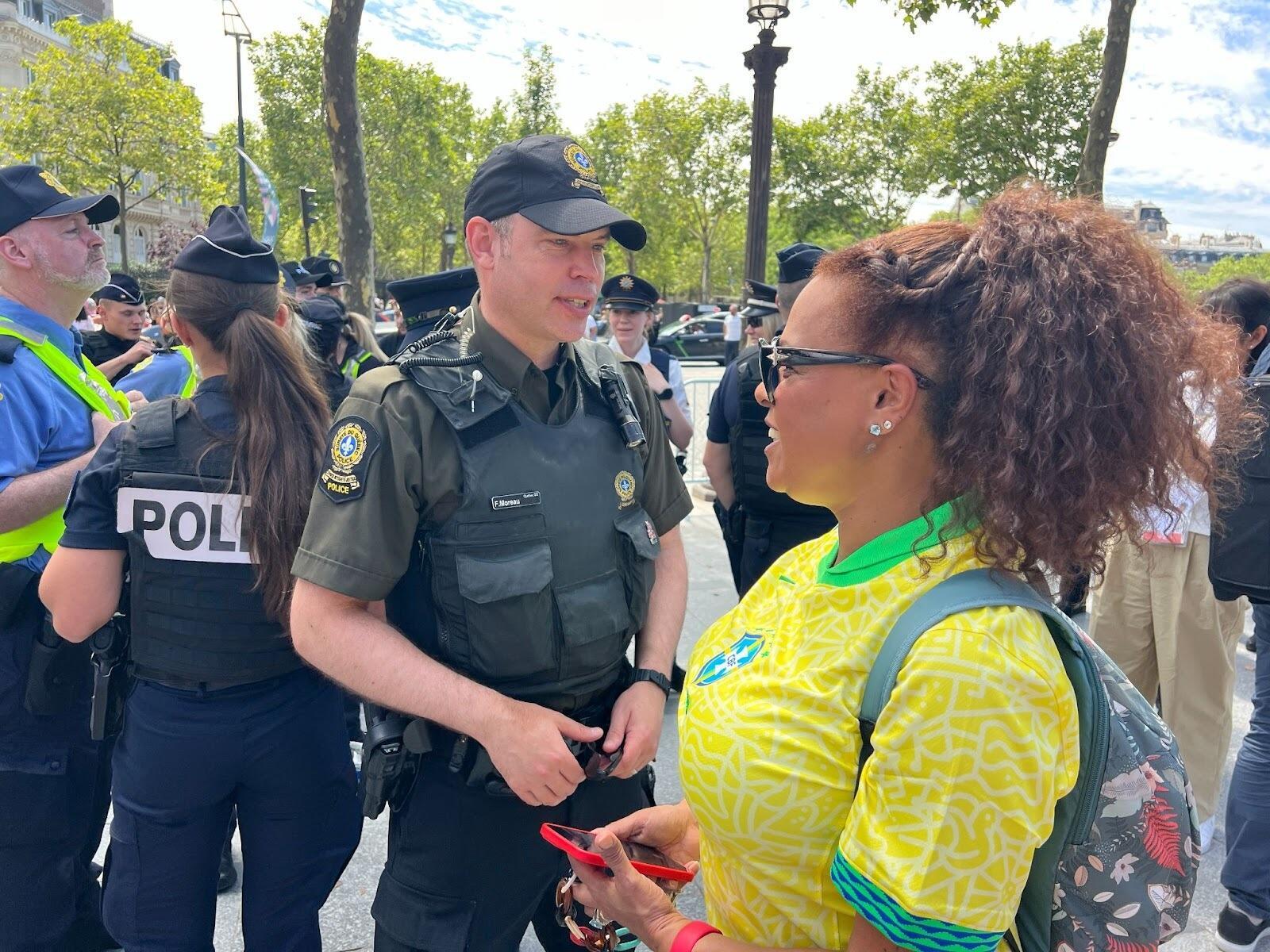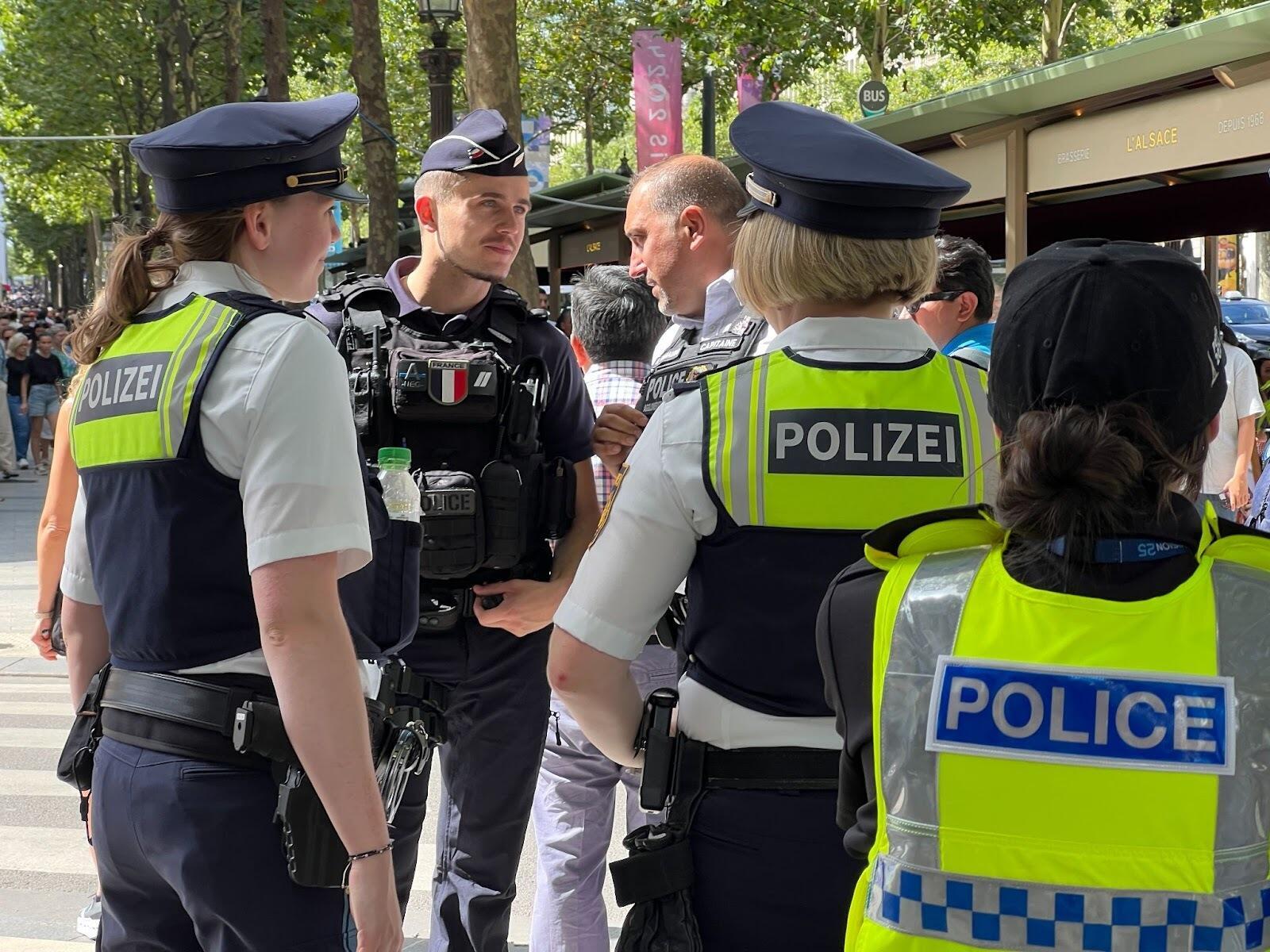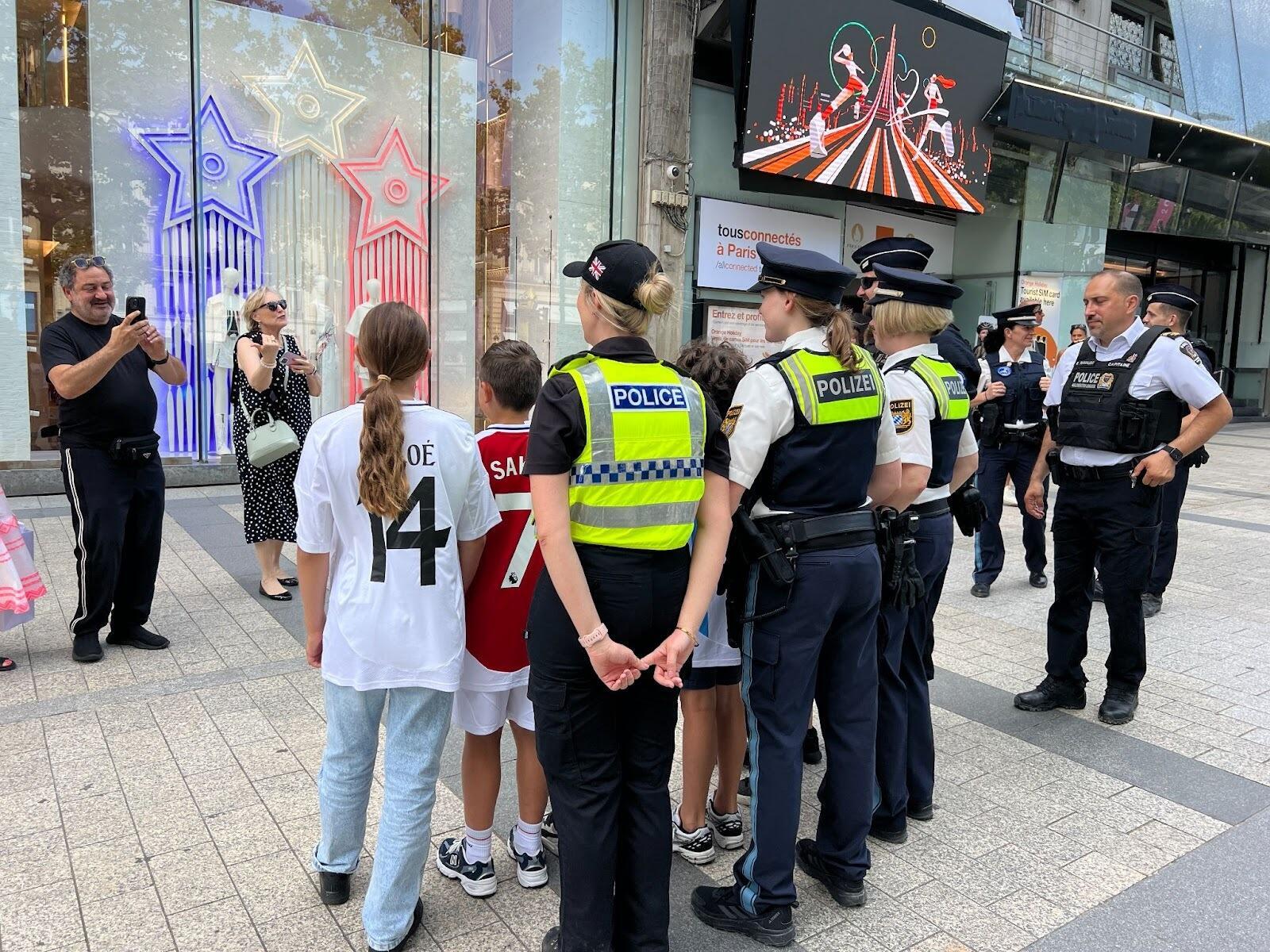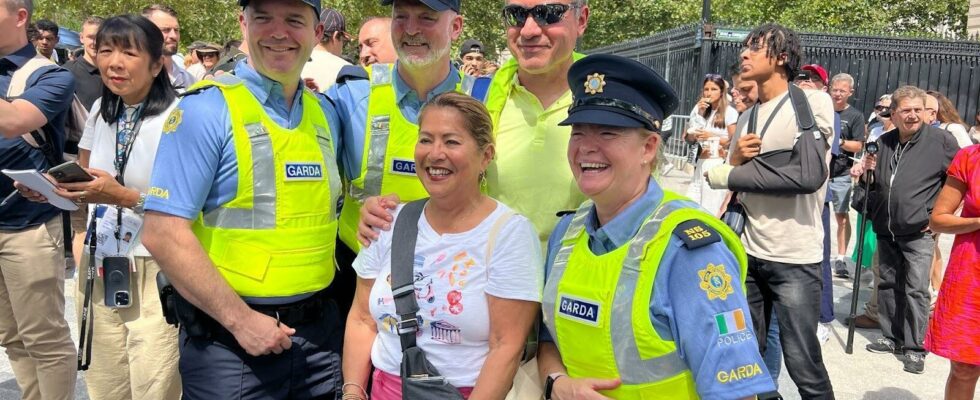Around 1,800 international reinforcements are mobilised throughout the competition period, in a process of cooperation between police forces around the world. They come from around forty countries. For their patrol, they follow French police officers and are only there to secure the premises in case of intervention. And in Paris, where the police presence is already very significant during the games, these police officers like no other are also, and above all, a landmark for foreign tourists.
A few steps from the Arc de Triomphe in Paris, Luz takes selfies. This American fixes all the uniforms and makes sure to photograph all the nationalities. Over there is the Los Angeles police. “, notes the tourist. Around her, they are Irish, Spanish, Canadian, or even American and wear different uniforms, sometimes yellow. They do not have the same flag embroidered on the shoulder but all have in common the ” Police ” written in big letters on their backs.
Under the supervision of the National Coordination for the Security of the Olympic Games (CNSJ), 1,800 foreign soldiers are mobilized in Paris throughout the period of the Games. On the ground, they work in tandem with French police officers for foot patrols around competition sites, tourist locations or transport. They are in contact with the public, as part of this Olympic spirit “, specifies Bernard Bobrowska, territorial director of local security in Paris.
In total, 43 nationalities are mobilized. Bianca, a Brazilian who now lives in France, looks up: “I know there is our federal police here, but I haven’t seen it yet, I’m looking for it! “. No Brazilians that day, but we embark with a patrol composed of British, Germans, Canadians, and two French policemen. Paul is one of them: ” Without us, they would be a bit lost, and that’s completely normal, we would be in the same position in their place! As for the missions, we, the French police officers, intervene first. The foreign police officers are there to secure the premises, what we call our security bubble, they can also intervene if necessary. “The Ministry of the Interior specifies: ” The use of weapons, ammunition or equipment is subject to the law of the host State and may only be used in self-defence or in the defence of others. »

” They are nicer here »
Recognizable by their uniforms, these police officers from elsewhere do not go unnoticed. It is difficult to walk 100 meters on the famous Avenue des Champs-Élysées without being stopped. Captain Eddy Renaudo is Canadian, a family in red t-shirts with a maple leaf calls out to him: ” Can we take a picture? “Once the moment is captured, a quick exchange between compatriots follows: ” So, is everything going well for you here? » « Yes “, the family replies, ” Perfect, have a great day ” concludes the captain. And the patrol continues.
A woman in a “Germany” T-shirt approaches the Polizei, the name of the German police, and takes a photo with officer Annika Doppelhammer. When I see them, I immediately feel at home, Oli launchesand then I find that they are nicer here, because usually the German police officers, in Germany, are a bit rigid. Here, as soon as I meet one, he always has a big smile! »
Annika Doppelhammer volunteered to work in Paris: “ We simply applied to come here. The German and French governments accepted it. And there you have it, I can live this experience of an international police force. Because obviously in Germany we work with German officers. Whereas here, we are with British, French, Canadians. »

There is no shortage of law enforcement for the Olympic Games. There are 45,000 people mobilized in the capitalThe handful of foreign police officers – themselves – mainly have a role as a point of reference for foreign tourists.
Between two selfies, it is also between police officers that exchanges take place. March, April, May… “, a French peacekeeper revises his English under the watchful eyes of two British officers: ” I should have paid more attention during my English lessons at school “, confides the one who wished to remain anonymous. ” But there is always someone who speaks several languages with us, and if not we use Google translate, we manage. “, he concludes. ” We learn a lot, we discuss different ways of doing things. For example, we British don’t have a gun on our belt, and in England, we often patrol in pairs, here the groups are bigger, it’s very interesting, I think. ” says Beth Gardner of Cumbria Police in northern England.

Patrols during which you have to juggle between security, discussions with bewildered tourists, visits to Paris and language lessons. On their days off, these foreign police officers put away their uniforms and activate tourist mode, ” I visited the Louvre Museum the other day ” marvels Beth Gardner, still in Paris for a few days before another British team replaces her.
► Follow all the news about the 2024 Olympic Games on RFI and rfi.fr
► Find the full program (calendar, results, etc.) on rfi.fr
